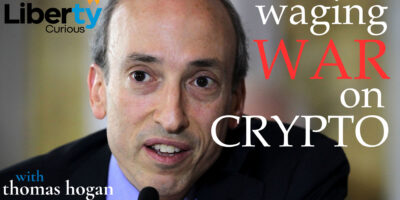Who Was Bastiat? Interview with David Hart (Video)
David Hart is an historian and a libertarian with interests in the history of the classical liberal tradition (especially the French), war and culture, libertarian class theory, and film.
Frédéric Bastiat was a pivotal figure in French classical liberalism in the mid-19th century. He suddenly emerged from the south west province of Les Landes to assume leadership of the fledgling French free trade movement in 1844 which he modelled on that of Richard Cobden’s Anti-Corn Law League in England. Bastiat then turned to a brilliant career as an economic journalist, debunking the myths and misconceptions people held on protectionism in particular and government intervention in general, which he called “sophisms” or “fallacies”. When revolution broke out in February 1848 Bastiat was elected twice to the Chamber of Deputies where he served on the powerful Finance Committee where he struggled to bring government expenditure under control. He confounded his political opponents on the left and the right with his consistent libertarianism: on the one hand he denounced the socialists for their economic policies, but took to the streets to prevent the military from shooting them during the riots which broke out in June 1848.
In the meantime he was suffering from a debilitating throat condition which severely weakened him and led to his early death on Christmas Eve in 1850. Knowing he was dying, Bastiat attempted to complete his magnum opus on economic theory, his Economic Harmonies. In this work he showed the very great depth of his economic thinking and made advances which heralded the Austrian school of economics which emerged later in the century. Bastiat to the end was an indefatigable foe of political privilege, unaccountable monarchical power, the newly emergent socialist movement, and above all, the vested interests who benefited from economic protectionism. He was a giant of 19th century classical liberalism. Interview made by the American Institute for Economic Research.











